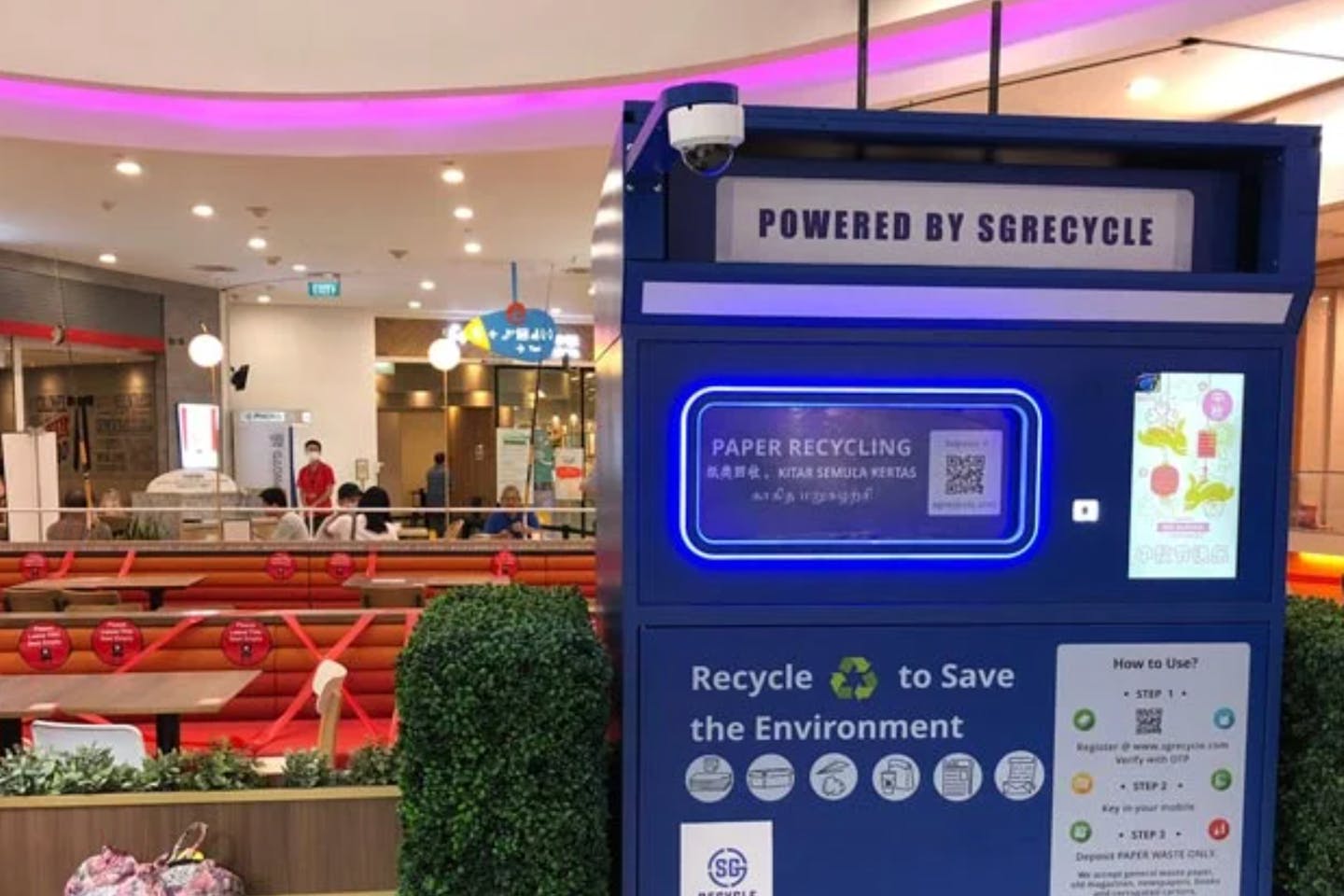By Robin Hicks
Copyright eco-business

Singapore recycling company SG Recycle is closing its paper recycling scheme, just four years after it was launched.
The company, which also recycles textiles and electronic waste, announced on Wednesday that it will be pulling its network of 84 smart paper collection bins from residential areas by the end of October due to a lack of sponsorship for the programme and low paper prices.
In 2021, SG Recycle raised $1.4 million in seeding funding to expand its network of smart paper recycling bins – which each cost about S$300 (US$232) per month to operate – across the island, with backing from recycling group Tai Hing.
The company is now looking for new partners to make use of its smart bins, which will be warehoused.
Founder and chief executive Mervyn Ng said: “SG Recycle remains committed to our mission and is open to exploring new recycling programmes for our smart recycling bins. We welcome opportunities to collaborate with likeminded partners to continue advancing Singapore’s and global recycling and sustainability goals.”
The closure comes despite widespread user support, according to SG Recycle, which said its smart bins collected “clean, high-quality recyclables with low contamination rates” – a chronic issue in Singapore’s recycling system.
Unlike the government-run blue recycling bins, SG Recycle’s system incentivised users with points that could be redeemed for rewards. In the first half of this year, SG Recycle reported having recycled 220 tonnes of paper.
SG Recycle has folded its paper business about a year after Singapore’s oldest paper recycling firm, Tay Paper, closed after 34 years in operation, due to financial constraints and low paper prices.
According to sources in the waste management sector, many of Singapore’s informal waste collectors, known locally as karung guni, have stopped collecting waste paper because of chronically low paper prices.
Rising costs for collection and export have also blighted the economic viability of paper recycling. The Waste Management and Recycling Association of Singapore (WMRAS), a trade body, called on recycling businesses to review their operations to remain financially sustainable last month.
While its paper scheme is ending, SG Recycle said it would continue to work with public waste collectors such as 800 Super and focus on exporting its smart recycling solutions abroad, including reverse vending machines for deposit return schemes – systems that encourage consumers to return waste materials for recycling. Its technology is used in more than 15 countries across Asia, Europe, Africa and the Americas.
The company urged users to switch to 800 Super’s Recycle Right programme to deposite waste paper for recycling.
SG Recycle was founded in 2020 during the Covid-19 pandemic when the domestic recycling rate in Singapore dropped to a 10-year low.
The latest recycling figures for Singapore, released in July, showed an historically low domestic recycling rate of just 11 per cent. Dr Janil Puthucheary, senior minister of state for the Ministry of Sustainability and the Environment, noted that a long-term decline in paper and cardboard recycling was to partly blame, even as the volume of waste paper has increased as a result of a post-Covid spike in packaging waste from e-commerce.
Lionel Dorai, executive director of non-profit Zero Waste SG, told Eco-Business: “It is an open secret that paper recycling has been on a downward trend over the past decade or more.”
“In fact, all recycling in Singapore is not doing well – there is supply, but low demand, because the cost to recycle is just too high.“
This is why the larger market-leading public waste collectors in Singapore can do the heavy-lifting for recycling and the smaller players are dying off, he said.



